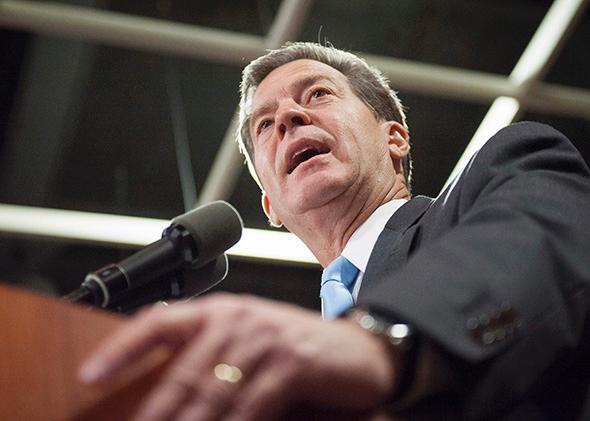None of the Republicans running for president has an agenda for fighting income inequality. But they do have a word for talking about it—opportunity. Jeb Bush says that “the opportunity gap is the defining issue of our time,” and that “more Americans are stuck at their income levels than ever before.” “This should alarm you,” he said at a meeting of the Detroit Economic Club earlier this month. “It has alarmed me.”
Likewise, explained Florida Sen. Marco Rubio in a January meeting with wealthy donors in California, “income inequality is a symptom of a bigger problem: opportunity inequality.” The problem, he said, was that you couldn’t get to the middle class with traditional work. “There are jobs out there that will allow you to get there. But you have to have skills and you have to have a system that allows people to access that.” And during the same event, Texas Sen. Ted Cruz echoed the opportunity talk: “The men and women who are gathered here I believe are patriots who love this country and who fear for the direction for their kids and grandkids and they are fighting for an environment where there is more growth and more opportunity in the future.”
As rhetoric goes, this works! Presidential elections don’t turn on policy, and Republicans don’t need anti-inequality programs as much as they need to cloak an existing agenda of tax cuts and deregulation in the language of mobility and opportunity. It worked for George W. Bush and “compassionate conservatism,” and there’s no reason it can’t work next year for the eventual Republican nominee.
Then again, Bush had the advantage of a unified GOP and a fast-growing economy. He could talk about conservative compassion without pushback from hyper-ideological governors or Tea Party congressmen. Today’s “opportunity” conservatives aren’t so lucky. Their language isn’t bolstered by their party as much as it’s undermined by a whole constellation of policies and rhetorical choices.
Take Congress. On Wednesday, during a hearing held by the House Financial Services Committee, Republicans accused Federal Reserve Chairwoman Janet Yellen of political bias. Her offense? Talking about income inequality. Last October she gave a speech stating—in dry, wonky language—that income inequality was growing and that it is a problem. Republicans thought that kind of talk was unacceptable. “You’re sticking your nose in places you have no business to be,” said South Carolina Rep. Mick Mulvaney to the woman responsible for stewarding the $17 trillion American economy.
It’s not that there’s a rule or norm against speaking on politically sensitive topics when you’re head of the Federal Reserve, it’s that many Republicans aren’t concerned with income inequality, and see the issue as a stalking horse for liberal expansion of government. To them, Yellen is speaking as a partisan Democrat, out to advance the administration’s mission.
But for as much as it runs counter to what Bush, Rubio, and Cruz are trying to do, this kind of heated rhetoric is less damaging to “opportunity” talk than the recent state-level push to slash higher-education budgets and raise taxes on the poor. In Kansas, Republican Gov. Sam Brownback is still trying to fill the hole caused by massive tax cuts for the rich. Unwilling to go back on his anti-tax convictions, Brownback has called for a $45 million cut to public education, including funds to colleges and universities. The same is true of both Gov. Bobby Jindal in Louisiana and Gov. Scott Walker in Wisconsin; the two presidential candidates would rather cut $300 million from state colleges and universities than raise taxes on the highest earners.
And in Maine, South Carolina, and Ohio, Republicans have cut state income taxes only to compensate with new fees and higher sales taxes, yanking cash from low-income Americans who spend most of their paychecks on goods and services. By siphoning income from the poorest residents while lessening the burden on the most affluent (in the name of “growth”), these policies do nothing but worsen income inequality and increase class stratification.
It’s not that this undermines the substance of Republican presidential policies—which will hew closely to the agenda of GOP states and legislatures—as much as it makes it hard to elide the consequences of those policies. No, voters aren’t wonks, but they can see what works and what doesn’t. It’s much harder to tout your tax and spending cuts as engines of prosperity or ladders to opportunity when there are real and recent examples of what happens when you slash revenue for the sake of upward redistribution.
There’s no doubt Republican presidential candidates will keep talking about income inequality. In the absence of a sluggish economy, their best bet is to try to claim the territory for themselves rather than cede ground to Democrats. By itself, that’s a tall order. It’s much, much harder when an entire chunk of your party is trying to make the problem worse.
